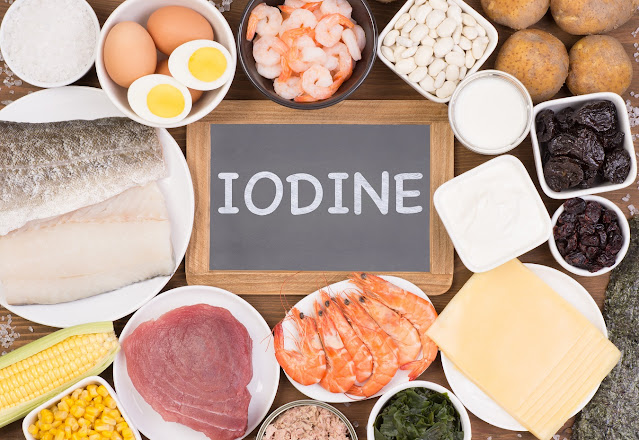Iodine Is Regarded As a Necessary Mineral for Our Bodies
 |
| Iodine |
I in its symbol represents the
chemical element Iodin, which has the atomic number 53. The heaviest of the
stable halogens, it normally exists as a semi-lustrous, non-metallic solid. It
melts at 114 °C (237 °F) and boils at 184 °C (363 °F) to produce a deep violet
liquid and violet gas, respectively. Two years after it was found by the French
chemist Bernard Courtois, Joseph Louis Gay-Lussac gave the element the name I,
which translates from the Ancient Greek as "violet-colored."
Iodine can be found in many
different oxidation states, such as iodide (I), iodate, and the various
periodate anions. Being the 61st most abundant element, it is the least common
of the stable halogens. Iodin is essential for the synthesis of thyroid
hormones and is the heaviest mineral nutrient. Iodin deficiency is the most
prevalent preventable cause of intellectual disabilities, affecting about two
billion people worldwide.
The global Iodine
Market is estimated to be valued at US$ 1,485 million in 2021 and is
expected to exhibit a CAGR of 5.4 % over the forecast period (2021-2028).
High Iodine doses taken over an
extended period of time may change how your thyroid gland operates. A number of
symptoms, including weight gain, could result from this. Iodin supplements
should not be taken in excess as this could be harmful. Supplements with 0.5 mg
or less of Iodin per day are not likely to be harmful. Our bodies are believed
to require Iodin as a mineral. It's essential during pregnancy, and being
exposed to certain things while a woman is still in the womb may even protect
her from later developing certain conditions.


.jpg)
Comments
Post a Comment